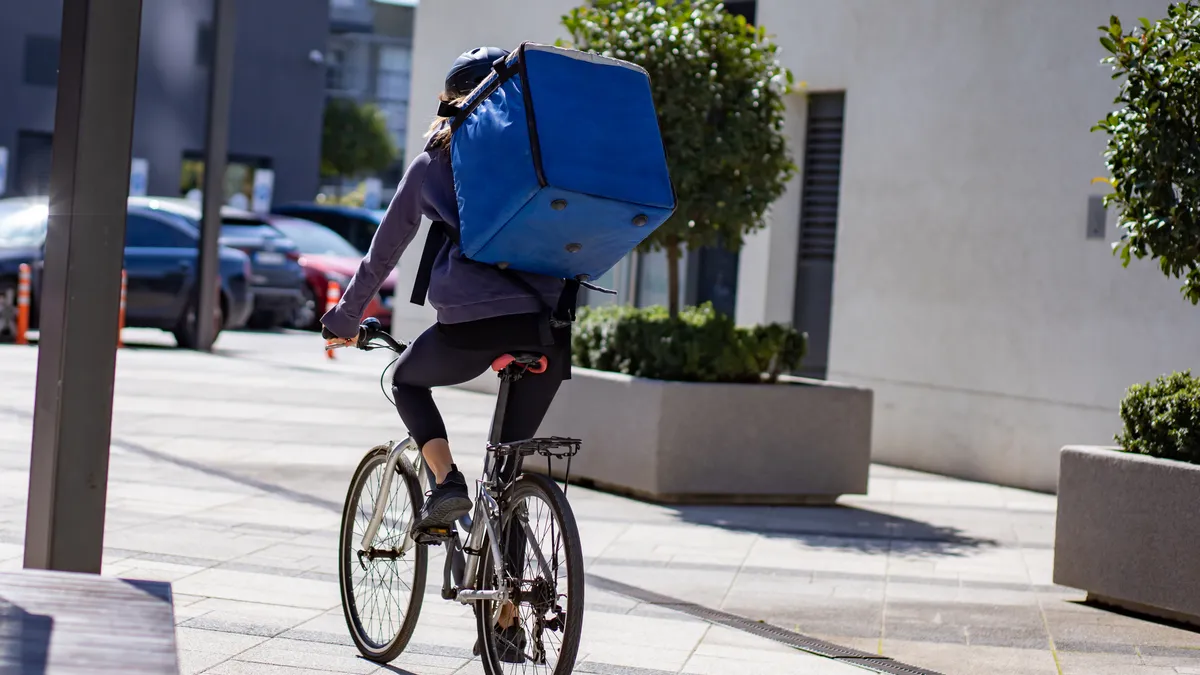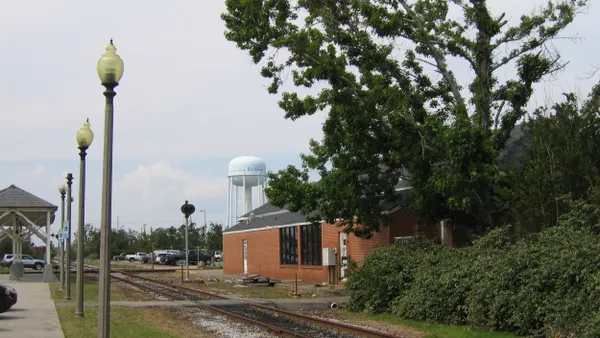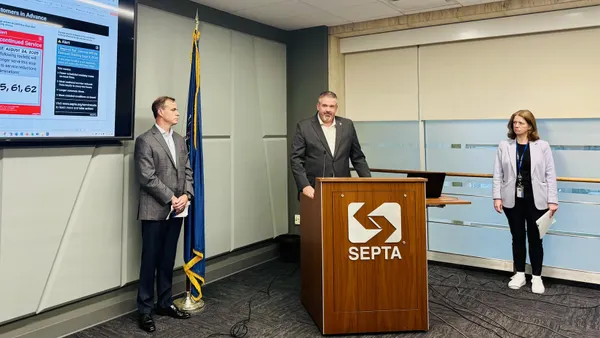Dive Brief:
- This summer Boston is launching an e-cargo bike pilot program that focuses on deliveries to and from small businesses which it calls the first of its kind in the U.S.
- The 18-month e-cargo bike pilot the city planned with the Metropolitan Area Planning Council received nearly $493,000 in funding through the Massachusetts Clean Energy Center and the state’s Department of Energy Resources, part of the $5 million in state funding that Massachusetts Gov. Charlie Baker announced earlier this month for equitable clean transportation projects in the state. According to the mayor’s office, city funds will nearly double the total funding for the program.
- In an email, the Boston mayor’s office said the pilot program "gives Boston an opportunity to reduce greenhouse gas emissions and congestion on our streets, all while making them safer for drivers and pedestrians alike."
Dive Insight:
Boston’s e-cargo bike pilot follows the path laid out by cities including Madison, Wisconsin, and Portland, Oregon, which have launched programs that provide municipal employees with e-cargo bikes. But Boston’s focus on small business deliveries is unique.
The delivery system makes good on some of Mayor Michelle Wu’s alternative transportation goals for Boston, which include hiring a chief of streets, which happened in December; plans for free-fare bus lines; and a network of connected bike routes.
Many of Boston’s centuries-old streets were not designed to accommodate large vehicles. Delivery trucks often stop in bus, bike, or travel lanes, resulting in increased congestion, the mayor’s office said in an email. Congestion rose during the pandemic as demand for food and grocery delivery services grew, according to Becca Wolfson, executive director of the Boston Cyclists Union, a nonprofit that advocates for bike access and safety in the city.
"During the pandemic, and even before the pandemic, it was very common for people biking through the city to encounter delivery trucks and vehicles stopped in bike lanes," said Wolfson. She said her organization supports the project’s aims: "Any opportunity to get people out of single-occupancy vehicles and into low-carbon transportation shouldn’t be overlooked," she said.
Wolfson also wants to know the pilot program’s impact: whether the pilot will demonstrate that fewer car and truck trips were taken due to the e-bikes; whether a proliferation of e-bikes can speed up the construction of new bike lanes; and if local businesses latch on to the new transportation method, helping to embed the program long term in Boston.
"The biggest challenge the program faces," said Wolfson, "is whether or not it will be sustainable once the grant runs out."
Boston city officials are creating a request for proposals to find a third-party operator for the e-cargo bike program that will work with a variety of small businesses to understand the challenges and opportunities such a program would address, said the mayor’s office.
Boston’s grant was one of five that the state funded related to e-bike ownership, rebates, and education programs across the state, with the funding totaling almost $3 million. All funded programs support Gov. Baker’s March 2021 climate plan, which committed to environmental justice programming and reaching net zero emissions by 2050.










